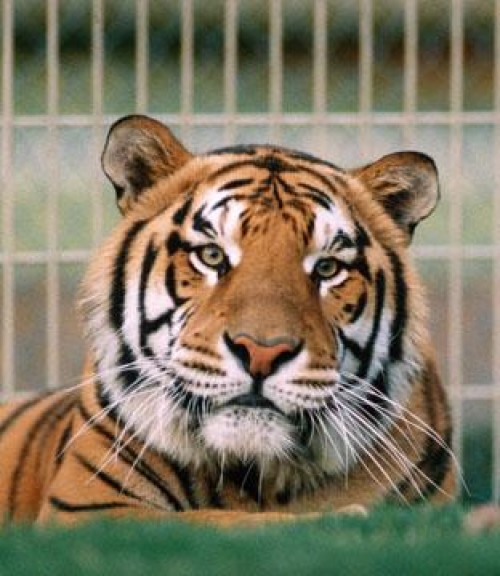
Alfred Stewart
May 25, 2007Yvonne Knudsen- Smith
June 1, 2007THE ASSOCIATED PRESS
A wide-open search is on at Louisiana State University to find the school’s next live Bengal tiger mascot.
Mike V died earlier this month, setting off the first hunt since the tiger arrived at the university as a 4-month-old cub in 1990.
David Baker, director of laboratory animal medicine at the LSU School of Veterinary Medicine and the mascot’s chief caretaker, said the journey could take LSU “anywhere there’s an airport.”
One item the winner will have to possess is the right personality.
“These animals are very difficult to work with, very difficult to care for, because you can’t just take them out of their enclosure and examine them,” Baker said at the press conference to announce Mike V’s death. “The better the personality, the easier it is to provide excellent care.”
Baker said the search could choose a cub or an adolescent tiger.
The hunt might not be difficult.
There should be plenty of tigers available, said Joe Forys, assistant curator of mammals for the Audubon Zoo. Forys said though Bengal tigers are an endangered species n with about 4,000 remain in the wild n there are between 10,000 and 15,000 tigers in captivity in the United States.
Because of its liberal laws concerning exotic animal trade, Texas is a likely source, Forys said.
“It’s probably not going to be very hard to find one,” Forys said. “You can go to just about any big city in Texas, and if they aren’t in the paper you can look online in classifieds and find big cats and various kinds of hoof stock for sale.”
Forys said tiger cubs can go from $1,500 to $10,000 each, depending upon color.
Ginger Guttner, a spokeswoman for the veterinary school, said the university is seeking a donor rather than an animal for purchase. Baker hopes to narrow the choices to from one to three candidates, then personally visit each one before making the final selection.
Forys said the source will probably be a private owner or a non-accredited facility.
LSU’s mascot costs about $15,000 per year to maintain with money provided by the athletic department, Guttner said. The Tiger Athletic Foundation is responsible for maintenance of the $3 million, 15,000-square-foot habitat.
Photo by STEVE FRANZ • LSU * A wide-open search is being conducted to find a replacement for Mike the Tiger.








